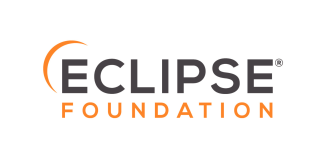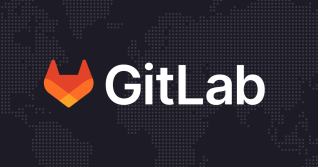In an increasingly crowded media ecosystem, finding an audience — and being heard — can be difficult, especially for indigenous communities with limited access to global platforms. But using the open source Colmena project, anyone can collaboratively plan, record, edit, and distribute hyperlocal and community-focused media products that reach audiences worldwide.
The Colmena project (which takes its name from the Spanish word for "beehive") is a GitLab Open Source Partner. I recently spoke with community members Nils Brock, Vivienne Gager, and Santiago Garcia Gago about how they use GitLab to help people find their voices, tell their stories, and help their communities.
We conducted our interview iteratively, asynchronously, and collaboratively via merge request.
Welcome to the the GitLab Open Source Partners community! We're so delighted you're here. Tell our readers more about Colmena. What is it?
Brock, Gager, and Garcia Gago: Colmena is open technology for journalists. Think of it as a mobile digital newsroom for field reporters and media outlets. Our software enables users to create and share content. But here is what's special: The solution is developed together with local and community media from the Global South, is free to use, and is completely open source.
The backbone of Colmena is a custom-made digital newsroom for production teams, which includes all essential features for content creation, with special consideration for audio productions and transmissions. So we have audio streaming and podcast production workflows, a mobile recording option (face-to-face and online interviews), and mobile text and audio editing tools. All tools are set up for cross-media collaboration and are highly customizable. It's also important to note that Colmena is already available in eight languages, including English, Arabic, and Ukranian.
But Colmena doesn't need to stop there. We are always open for new suggestions.
Where can users download Colmena? How can they use it?
As a lightweight app (a so-called "progressive web application," or PWA), Colmena performs on a wide range of mobile and desktop devices for easy online/offline creation and collaboration. On the server side, we have established a secure and federated architecture, offering cloud-based sharing, storage, and publishing wherever you want, be it your own website on social media or other platforms.
How did the project get started? What mission, vision, and values drive it?
The initiative was born as a response to the COVID-19 pandemic, and it's led by DW Akademie and the Mexican NGO Redes por la Diversidad, Equidad y Sustentabilidad A.C. The project is supported by the German Federal Ministry of Economic development and Cooperation (BMZ) as part of the Global Crisis Initiative (GKI).
Our vision is to provide safe and inclusive digital tools for the communication, creation, and sharing of human rights-based content, to defend and extend freedom of expression to all parts of the world. And as the driving force behind the Colmena project, our mission is to sustainably maintain and develop the open source Colmena software as a commons, based on the needs of community-centered communication, networking, and media practices of the global majority.
Collaboration is an important aspect of Colmena's development model. We develop the application working closely with media partners, to whom we refer as "communities of practice" (CoPs). Generally, one or two members of each CoP serve as representatives of their media outlets in the Colmena project. One might say they have the most important role in the project. Colmena is a collective response to their needs, and we want to design it to overcome challenges they face.
How does the Colmena project use GitLab to accomplish all this?
We use of GitLab for the Colmena Project in three different ways. The first use is quite technical: We use it as a development platform and code repository. All repositories for the Colmena PWA are public; we keep only the "infra" project private (since that's where the data of our development servers are stored).
Secondly, GitLab's wiki feature serves us quite well as a documentation space for both our general work team and additional collaborators, who are the coordinators of our CoPs and the media partners involved in the co-creation of Colmena. In the wiki, for instance, we socialize information for the onboarding of new team members — like general information on the project, additional literature, and manuals of the tools we use in the project and documentation of conducted workshops for internal knowledge sharing. Before we had this documentation stored in a Nextcloud instance, but using GitLab for this work creates deeper understanding between the users, coordinators, and the development team about Colmena development processes and workflows.
Finally, we maintain an open "support" project. In this project, the coordinators of the CoPs, who work with 30 media outlets from different countries, collect suggestions or detected bugs and report them. The development team evaluates and responds to each of them. If they need specialized attention — for example, development of a new feature or some bug fixing — we move these these issues to the corresponding development projects. We are currently migrating this repository from our self-hosted instance to Gitlab.com.
Why did the Colmena project choose GitLab as its development platform?
Colmena was born as a free and open source software project; many of the developers and members of the coordination team have been involved in free software and community media projects before (for example, in the Network of Community Radios and Free Software). Our project always wanted to maintain this philosophy when looking for suitable software development platforms. That's why we chose GitLab: It shares our ideals regarding software development and knowledge sharing. Furthermore, Colmena is proud to use GitLab together with other free software projects that we have been using for ages, such as Inkscape, Debian, and VLC.
Besides the shared philosophy, however, GitLab offers us technical options that other platforms do not. For example, it can be self-hosted, allows for management of groups and subgroups is, and features integrated planning tools like epics and roadmaps that really benefit the development process.
How can potential contributors learn more about Colmena?
If you want to get in touch with us, please visit our website or write the team directly at [email protected]. You can also browse the project and contirbute on GitLab.
Watch the webcast
Watch our interview with the Colmena project.
Learn more
The GitLab Open Source Partners are building the future of open source on GitLab. Connect with them on Gitlab.com.



